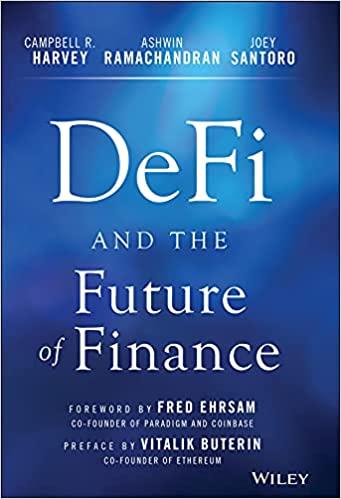Question
Fill in the blank using a number of terms listed below (@1 point). Business risk, Capital budget, Capital rationing, Capital structure, Financial leverage, Financial risk,
Fill in the blank using a number of terms listed below (@1 point).
Business risk, Capital budget, Capital rationing, Capital structure, Financial leverage, Financial risk, Fixed charges, Flexibility, Hurdle rate, IRR, MIRR, NPV, NPV profile, Operating leverage, Payback period, Post audit, Public utilities, Replacement chain, Tax benefits
1. ________________ is normally expressed as the percentage of each type of capital used by the firm--debt, preferred stock, and common equity. _____________ is the risk inherent in the operations of the firm, prior to the financing decision. Thus, it is the uncertainty inherent in a total risk sense, future operating income, or earnings before interest and taxes (EBIT).
2. ______________ is the risk added by the use of debt financing. Debt financing increases the variability of earnings before taxes (but after interest); thus, along with business risk, it contributes to the uncertainty of net income and earnings per share.
3. ________________ is the extent to which fixed costs are used in a firms operations. If a high percentage of a firms total costs are fixed costs, then the firm is said to have a high degree of operating leverage.
4. ______________ is the extent to which fixed-income securities (debt and preferred stock) are used in a firms capital structure. If a high percentage of a firms capital structure is in the form of debt and preferred stock, then the firm is said to have a high degree of financial leverage.
5. Reserve borrowing capacity exists when a firm uses less debt under normal conditions than called for by the tradeoff theory. This allows the firm some ___________to use debt in the future when additional capital is needed.
6. If sales tend to fluctuate widely, then cash flows and the ability to service _____________ will also vary. Such a firm is said to have high business risk.
7. ______________ place greater emphasis on long-term debt because they have more stable sales and profits as well as more fixed assets. Also, they have fixed assets which can be pledged as collateral.
8. The ____________ from debt increase linearly, which causes a continuous increase in the firms value and stock price. However, financial distress costs get higher and higher as more and more debt is employed, and these costs eventually offset and begin to outweigh the benefits of debt.
9. ___________________ is the whole process of analyzing projects and deciding whether they should be included in the capital budget. This process is of fundamental importance to the success or failure of the firm as the fixed asset investment decisions chart the course of a company for many years into the future.
10. _______________, is the number of years it takes a firm to recover its project investment. Payback may be calculated with either raw cash flows (regular payback) or discounted cash flows (discounted payback).
11. _________ is the discount rate that equates the present value of the expected future cash inflows and outflows. It measures the rate of return on a project, but it assumes that all cash flows can be reinvested at this rate
Step by Step Solution
There are 3 Steps involved in it
Step: 1

Get Instant Access to Expert-Tailored Solutions
See step-by-step solutions with expert insights and AI powered tools for academic success
Step: 2

Step: 3

Ace Your Homework with AI
Get the answers you need in no time with our AI-driven, step-by-step assistance
Get Started


